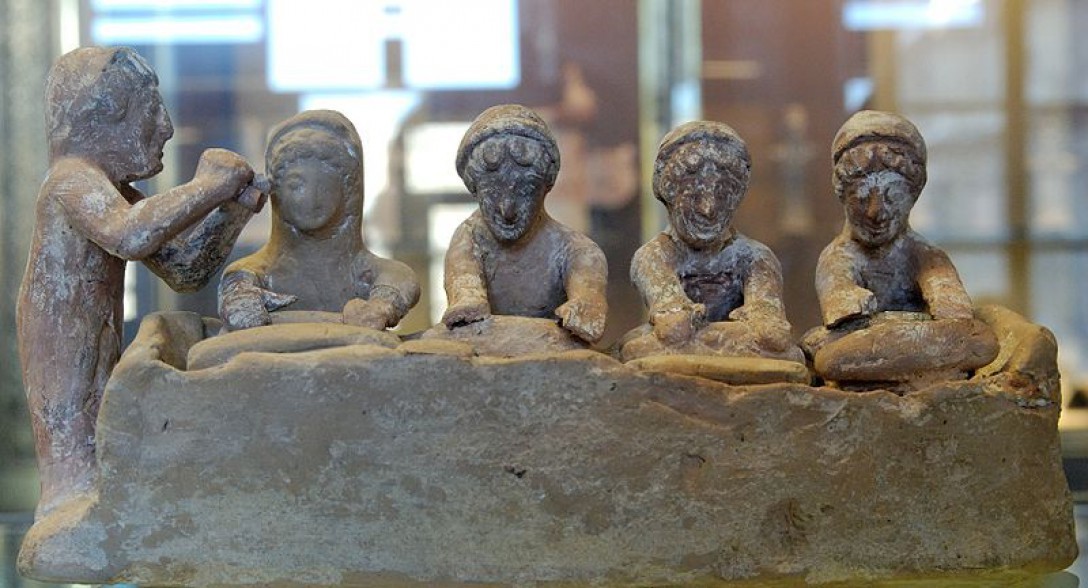
According to the Chronicle of Theophanes the Confessor, the extremely bitter cold settled on the Byzantine Empire on October of 763. On the north coast of the Black Sea to a distance of 100 miles the sea froze to a depth of 30 Byzantine “cubits”. “All this ice was snowed upon and grew by another 20 cubits, so that the sea became indistinguishable from land: upon this ice wild men and tame animals could walk…. “
In February the ice began to break up and and huge mountains of ice were driven through the Bosphorus by the force of winds, reached the Constantinople and filled the whole coast as far as the Propontis, the islands and Abydos. Theophanes recalls how, as a child, climbed on one of those icebergs and played on it together with thirty other children. Some of his pets and other animals died. Anyone who so wished could walk all over the Bosporus around Constantinople and even cross to Asia on the ice.
Food production was the foundation of the medieval economy. Severe climatic anomalies, among other factors, could bring destruction of the food production and supply as well as the death of draft animals. According to the Chronicon Moissiacense written in southem France, the extreme cold winter of 763 killed many olive and fig trees in former Yugoslavia and in Thrace. However, neither the Chronicon nor the Byzantine sources include mention of food crisis. Given the fact that the prinicipal sources of that winter, Theophanes and Patriarch Nikeforos, were rather hostile to the ruling emperors, we can assume that they would record such crisis if it had occured.
Didn’t the winter affect food production?
I wonder if the population levels were that low, so the extremely cold didn’t cause famine. Any ideas?
The Chronicle of Theophanes Confessor: Byzantine and Near Eastern History AD 284-813. Tr. Cyril Mango and Roger Scott (Oxford, 1997)
ΓΙΑ ΕΛΛΗΝΙΚΑ ΕΔΩ


Theophanes is an inexhaustible mine, which gives very important information about Byzantium. The value of the information about the winter of 763-4 is strengthened by the fact that Theophanes was hostile to the ruling iconoclast emperors. If a food crisis had occured, he would had been eager to record it. But would he had been eager to record a smaller scale food shortage? Moreover, the last outbreak of Justinian's plague ravaged Constantinople in 750. Were the population numbers still low? If a population decreases, so does demand for food.
I would think that the horrible winter affected food production. Just the fact that the sea froze would be a clue. It is too bad that along the centuries and countries common people couldn't write and were not educated otherwise we might have a different view of history. (Not long ago, I read that Napoleon was around 5'8, not the short person people think he was or was described in history books).